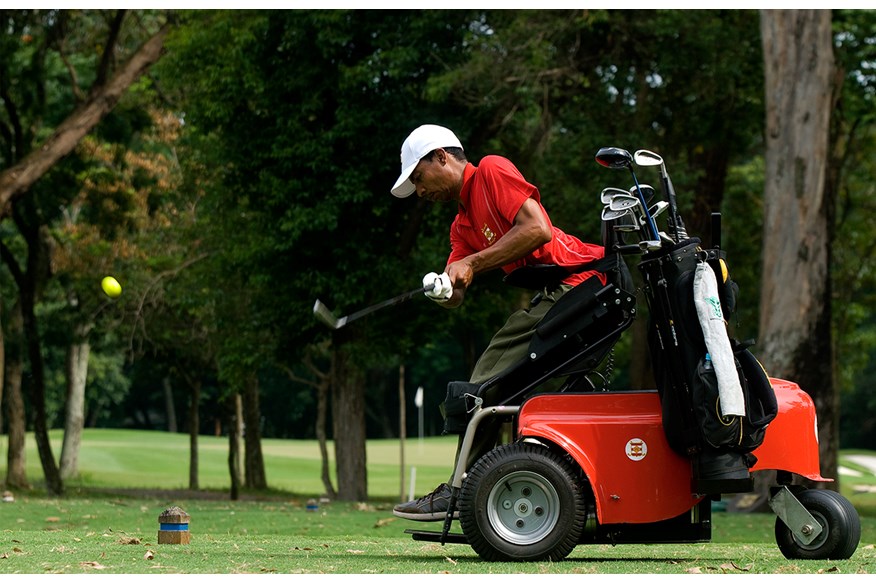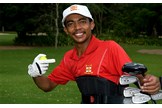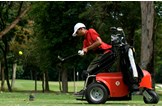Mulligan: Lucas Valde Marciano De Oliveira
Last updated:
Aged 20, Lucas Valde Marciano De Oliveira had just started making a living as a pizza delivery guy in São Paulo when he took eight gun shots to his back in an unprovoked attack by two men, who stole the equivalent of £400, his watch and tennis shoes. In a matter of seconds, Lucas was rendered a paraplegic. In a city which didn’t understand golf, and from his wheelchair, Lucas was hardly a prime candidate to get hooked on the game… but he has. He says: “I am totally in love with the sport…”
On that dreadful night and in the months and years that followed, Lucas had his faith tested to the limit.
“At first I was distraught, but I learned to deal with my disability, and I did not stop fighting for my dreams and did not give up on winning,” he says, and the strength he has gained from the love of his life Kelly is clearly immense.
“I have been married for 11 years with my wonderful wife, Kelly Cristina Dos Santos Oliveira. She has supported me since the beginning of my disability, even though we were only dating when the shooting took place. She did not abandon me, and she is still with me to this day.”
At first Lucas had to learn how to live again.
“Everything was new, I became a baby again and had to learn how to do everyday things with a different body, and learn how to use a wheelchair. Your body changes completely, and you have to learn to cope with a new life experience.”
These were dark days. Lucas drew heavily from his faith and realised that he was lucky to live.
“To wake up, breathe the air, and enjoy every moment of our lives, whether disabled or not is incredible. We all have problems, but all problems have a solution for us to find. The important thing is that I am alive, have hope in my heart and always have faith that in God everything is possible.”
He believes fate intervened when, after passing by a golf course and enquiring about opportunities, he was given the telephone number of the São Paulo Golf Federation. Lucas was soon accepted into their adaptive golf project.
These first few steps changed the life of Lucas and golf gave him a sport where the benefits, “are not limited to my physical health, but also my psychological and emotional wellbeing; the practice of golf helps increase my self-esteem and the quality of my life,” he adds.
In the land of football, golf is not a very popular sport in Brazil, with less than 30,000 golfers in a population of more than 200 million people. Lucas makes an 80-minute journey across town daily, navigating escalators, public transport, and poorly maintained pavements to reach the Federation’s golf facility.
“When I made the first visit to a golf course, I came across nature and felt like a small part of the sky. It was an emotion that made me cry. I am totally in love with the sport,” admits Lucas.

As with most people, Lucas started by hitting balls on the driving range. He would wheel himself to a mat and start swinging the golf club while sitting in his chair. He now has a fierce determination to become a golf professional, but his head is not filled by visions of grandeur, as he realises the dedication necessary to reach such a level of proficiency will not be easy to achieve.
He advises others who may be struggling to come to terms with their disability to, “never give up fighting for something you want, live every moment of your life, because today we are alive, but we do not know what tomorrow brings. Be dependent on yourself, everything we do is good for us, we are only disabled, we are not poor things, after all, we are all human beings with strength and will.”
Lucas is just one of 18 golfers, who have shared their story for Mulligan, a book published by the European Disabled Golf Association. To find out more, visit www.edgagolf.com/book


